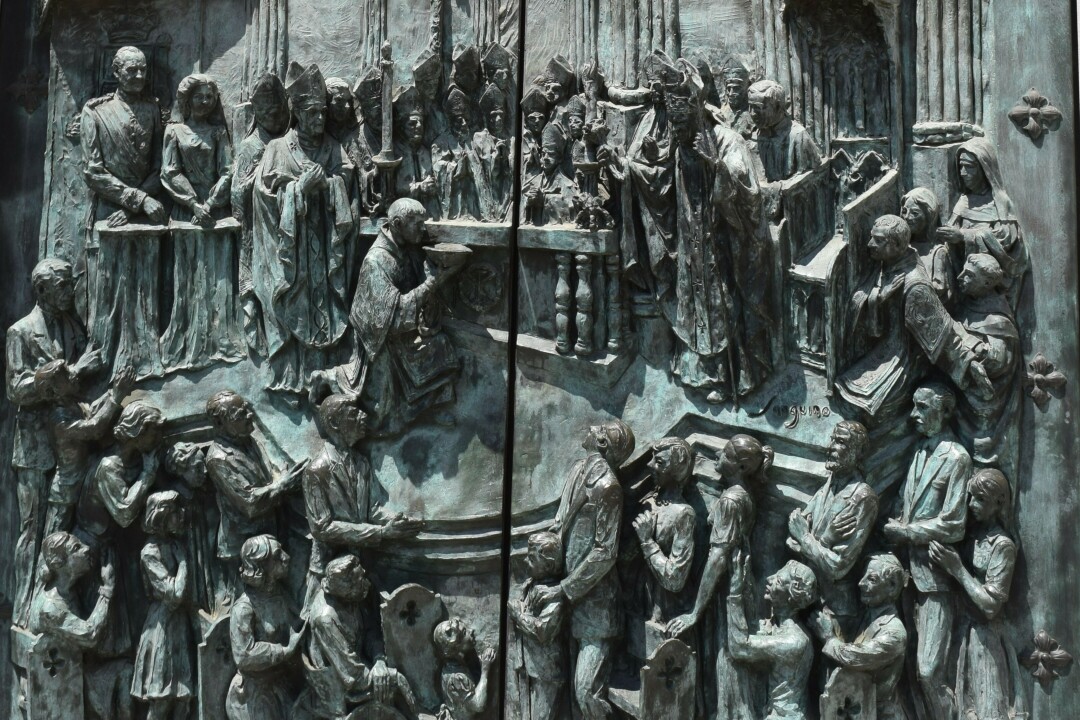Famous Allegories
Friday Jul. 1st, 2022

If we’re talking about culture, education, or even religion – it’s impossible not to mention some allegory examples and the meaning behind them. But first, let's start with the definition. An allegory is a theme, which is characterized by two meanings. One of them is a literal one, and the second is more hidden and imaginary. It’s also worth noting that there is a minor difference between a symbol and an allegory. A symbol can represent multiple things and various meanings, while a specific allegory is always tied to the same hidden meaning. Now that we know the allegory definition and its main principles, we can dive into some actual examples.
Animal Farm
This might be one of the most popular allegories coming from literature. Many student groups are asked to write about the meaning behind George Orwell’s book and the hidden message. Most essay examples mention how it’s a political statement about the dangers of power, hierarchy, and an inevitable revolution. Perhaps the right way to give an animal farm summary is to present the theme as an allegory of totalitarianism, corruption of social groups, and how injustice always fires back. The book is written in a simple and easy way, with animal characters, which makes it a great choice for college members.
The Snake
Keeping up with the animal pattern, the allegory of a snake is often present in various sources of culture. Some of the most popular examples include The Bible, where snakes are perceived as very cunning and unlawful creatures. This can be seen in the scene where Adam & Eve are tempted to eat the forbidden apple. This is another popular theme that most university members could list straight out of their head. That only shows how deeply this allegory is engraved in our society, despite it being ancient… But not outdated!
The Divine Comedy
A poem by Italian Dante Alighieri might be the top 1 allegory of them all. It’s a summary and synthesis of medieval philosophy and history. The poem showcases a journey of a poet, who goes over different realms – hell and heaven included. It is a complex allegory, with surprising twists about the author himself.
It turns out, Dante Alighieri portrayed himself as the main character, as well as the narrator. Other fun facts include the fact that he wrote the poem in honor of his wife, who died earlier. This Italian masterpiece is a recognized classic among college students and contributed to the further development of European art.
The Prodigal Son
A well-known parable from the Bible is a story of a son who decided to leave his father searching for lust and entertainment. While he certainly found the fun quite fast, the consequences were devastating. The son lost all the money and ended up being extremely poor, just to eventually come back to his father and old home. The father forgave all his sins, and they continued to live together. This biblical story is an allegory of how God always waits for faithful people, even if they have a shady past. It’s a very moving story and definitely the most popular religious text, which suits the allegory definition.
The Drunken Boat
A 100-line poem created by french Arthur Rimbaud, this text is a description of a cargo ship pointlessly wandering, lost at sea. The poem also includes large amounts of symbolism, but the main hidden meaning refers to the image of our world. How the Earth is full of surprises, mystery, and uncertainty. The author also describes his drinking problem, which is described as the ship slowly starting to sink. While the poem might seem like an encouragement to go out and seek the unknown, it actually states that humans find comfort in what they are already used to.
Conclusion
Now that you know the allegory definition and some famous, well-known examples, it’s time to indulge in literature and art in order to find other examples. Some good starting points could be mythology, religious texts, and even contemporary art and movies. No matter which field interests you the most, there is a good chance you will find some other allegories than those mentioned in this essay.
| Tweet |